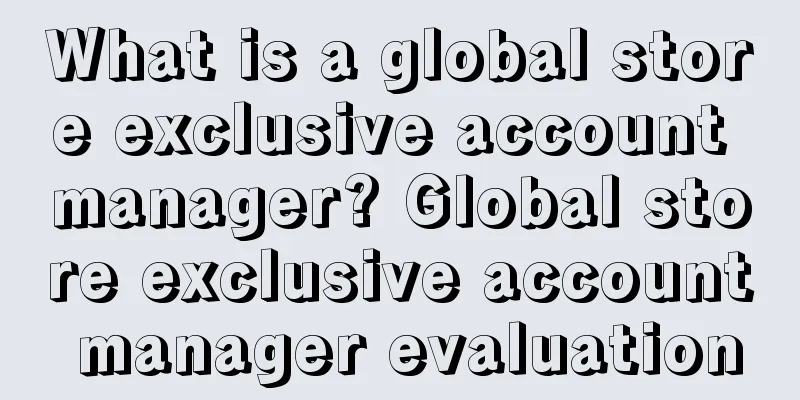|
Since the beginning of 2024, there have been frequent good news about the listing and financing of leading cross-border e-commerce companies. First, Ruilian Technology accelerated its IPO process and prepared to list on the Shenzhen Stock Exchange's Growth Enterprise Market; then, Greenlink Technology changed its IPO review status and launched a new round of listing impact. The already crowded cross-border e-commerce track has become even more lively for a while. In fact, since 2020, cross-border e-commerce financing has been hot, and the huge market space of the industry has attracted countless capital supporters. Under the attention of capital, the listing tide of leading companies has been higher than the previous wave. There are many players who are growing wildly and selling goods, and more and more brand-name sellers are also pouring in. New and old forces are gathering in the financing track, competing to knock on the door of IPO.
However, going public does not mean the end. After opening that door, some people climb to another peak, but some people suddenly fall after a brief moment of glory.
According to the latest report released by China Internet Network Information Center, affected by economic cyclical fluctuations, the investment and financing activities of China's e-commerce industry will hit a five-year low in 2023. However, in the midst of the fierce wind, cross-border e-commerce has emerged as a new force: with a large amount of capital injection, the total financing amount in 2023 will reach 15.7 billion, a year-on-year increase of 20.53%. Looking back at 2023, we can see that many established and emerging brands have successfully landed in the capital market:
In addition, many leading companies have put their IPO plans on the agenda or launched a new round of impact: for example, the home furnishing giant JESIA signed a listing guidance agreement in November last year and officially started the A-share IPO process; the old 3C leader PISEN Electronics disclosed its IPO prospectus and impacted the Shenzhen Stock Exchange's main board listing... From the perspective of segmented tracks, 3C, as a popular category with a large scale and strong demand, has always been favored by capital, and there is no shortage of new stories and new faces. In the past, there was the brand player Anker and the distribution leader Youkeshu, and now there are also new IPOs in the making - such as UGREEN and Ruilian, leaders in different vertical fields such as mobile phone accessories and security cameras. The home furnishing industry, which is highly competitive but has huge growth potential, is also nurturing a wealth of IPO stories: Legao and Henglin, two established companies that entered the capital market early; and Zhiou Technology , and Mexin Technology, new capital darlings that have just joined the listed club; as well as Jessica and Mingyuan Creative that are ready to launch an attack. The pet category's counter-cyclical nature and huge market potential were first discovered by capital with a keen sense of smell, making it a hot commodity. As of September 2023, seven A-share listed companies in the pet industry have successfully completed IPOs, including the "first dog leash stock" Yuanfei Pet, the pet food giant Guaibao Pet, and other overseas companies. In addition to the above popular tracks, emerging fields such as outdoor camping, smart hardware, new energy, ebike, etc. are also running wildly, and a large number of IPOs have been launched under the favor of capital. The capital market is changing rapidly, and the financing ecology is also hot and cold. What these tracks have in common is that they are developing rapidly, have strong demand, have huge incremental space and broad market prospects. Behind the surge in listings is the booming growth of the cross-border industry. Especially in 2020, with the help of the epidemic, the online consumption dividend was released, and cross-border e-commerce ushered in a golden age of explosive growth, which also attracted a large number of capital. Industry data shows that in 2020, there were 56 cross-border e-commerce financing events with a total financing amount of 18.6 billion yuan . With hundreds of millions of dollars in Series E financing and a net worth of 15 billion US dollars, it stepped into the spotlight, shed its mysterious veil and became the darling of capital competition. As more overseas companies shine on the international stage, it also stimulates capital's desire to bring out the "next SHEIN" or the "next Anker." Today, some sectors have lost their popularity, while others remain so. However, more and more emerging sectors are rising strongly. Although the enthusiasm of capital has cooled down, it still maintains a very keen sense of smell. Therefore, there is no shortage of leading companies competing for IPOs on this long road to going overseas.
From the perspective of enterprises, there are many benefits to going public: increasing the company's visibility, brand value and market influence; raising funds and introducing external capital to further expand the scale of the enterprise; improving the corporate governance structure and enhancing competitive advantages; enriching financing channels and sharing operating risks... But at the same time, going public also means that the fate of the company is no longer entirely controlled by itself. It must be responsible to all shareholders and is constrained by capital. One seller said bluntly: "I have seen too many companies that, after going public, because capital comes in too quickly and they are more easily influenced by capital, it is easy for them to lose their original intentions. So I have seen many A-share listed companies reach their peak after listing, and then go downhill." What the seller said is true. As the wave of cross-border e-commerce IPOs continues to rise, behind the frenzy there are also many big sellers that suddenly fall from grace after IPOs - from soaring performance to consecutive years of losses. Going public is like a "magic curse". After crossing the IPO door, some people face the fate of falling. Greebo: Huge losses as soon as it went public On February 8, 2023, Greebo went public on the Shenzhen Stock Exchange's Growth Enterprise Market. After the listing, Greebo's stock price soared. The listing price was 30.85 yuan per share, and the highest price on the first day reached 41.82 yuan per share, with a total market value of 18.62 billion yuan. However, just one month later, on March 13, Greebo's stock price fell below the issue price and closed at 30.70 yuan per share that day. As a leader in the overseas expansion of garden machinery, Greebo's performance grew steadily before its listing, with revenue increasing year after year from 2019 to 2022, and net profit attributable to shareholders of the parent company being 565 million yuan, 280 million yuan and 266 million yuan, respectively. However, after entering the capital market, Greebo did not enter a new era of development under the support of capital as shareholders had hoped. On the contrary, it was surprising that its first semi-annual report after listing was an unsatisfactory answer sheet: revenue in the first half of 2023 was 2.581 billion, a year-on-year decrease of 18.79%; net profit loss was 53.91 million, a year-on-year plunge of 121.24%. The reason given by Greebo for this is: affected by the destocking of downstream retailers, the objective situation faced in the first half of the year, especially in the second quarter, was relatively severe. However, at the same time, in order to seize the market opportunity and prepare for future growth, it still needs to increase investment in sales and R&D. However, once the losses began, they were out of control. The sharp increase in sales expenses not only failed to stop the decline in demand, but instead increased the cost burden. In the third and fourth quarters that followed, Greebo's losses continued to expand. According to the latest disclosed performance forecast, Greebo expects to achieve revenue of 4.6 billion to 4.7 billion yuan in 2023, a decrease of 9.8% to 11.7% from the same period last year; the net profit is expected to be a loss of 370 million to 430 million yuan, a sharp drop of 239.1% to 251.7% year-on-year. It can be seen that since its successful listing, Greebo has not seized the growth curve with the support of capital, but its performance has plummeted for several consecutive quarters. Huabao New Energy: Losing ground On September 19, 2022, Huabao New Energy, a portable energy storage company, was listed on the Shenzhen Stock Exchange's ChiNext board with an issue price of 237.5 yuan per share, becoming a new A-share company that year, with a market value of 20.2 billion on the first day of listing. A large part of the reason why Huabao New Energy was able to land successfully is that it took advantage of the boom in portable energy storage. Under the global green consumption wave, the new energy track has become a "hotshot" in recent years and has been favored by a large number of investors. As a long-established manufacturer with deep roots, Huabao New Energy has seized the market dividend with its first-mover advantage and stood at the forefront of the portable energy storage market. The prospectus shows that 2020~2021 was a period of rapid development for Huabao New Energy, with revenue increasing by 235.42% and 116.36% respectively, with net profit in 2020 soaring by 235.42%. However, as the competition in this blue ocean became fiercer, the barriers built by its channels and brand first-mover advantage gradually lost their advantages, and its performance began to decline. The financial report shows that Huabao New Energy's revenue and net profit growth rates in the year of its listing were 38.35% and 2.64% respectively. Although it is still in the growth stage, its profit level has shown signs of decline. Therefore, Huabao New Energy's highlight moment did not last long. In the first quarter of the year after its listing, its revenue fell by 26.77% year-on-year, and its net profit plummeted by 140.45%, with a loss of nearly 30 million. In the following quarters, Huabao New Energy failed to stop the decline and start a turnaround, and its losses became larger and larger. According to the latest performance forecast, its full-year loss in 2023 is expected to be as high as 140 million to 200 million yuan. Relevant data shows that as of September 19, 2023, the first anniversary of Huabao New Energy's listing, its total market value has fallen from 20.2 billion yuan at the beginning of its listing to 8.1 billion yuan, a drop of more than 60%. The comparison between the two is inevitably regrettable.
It is not difficult to see that both Greebo and Huabao New Energy reached their peak upon listing, with their performance "reversing at two levels". Another major common point between the two is that they are in a hot track and have successfully seized the dividends and are favored by capital. However, the brilliant performance in the boom had already laid the groundwork for an avalanche. Both Greebo and Huabao New Energy have been working in their respective fields for many years, accumulating deep channel advantages and brand heritage, so they were able to seize the opportunity when the boom came. However, as industry competition intensifies and market structure continues to upgrade, higher requirements are placed on the construction of the core moat of enterprises. In other words, it is not advisable to rely solely on old capital. Only by building strong competitive barriers can we avoid being eliminated in the internal circulation. From the development status of Greebo and Huabao New Energy, both have been impacted by competitors to varying degrees: the former cannot catch up with industry leaders such as Chuangke Industrial and Giant Star Technology, and is also controlled by Quanfeng Holdings. The leading rival was in hot pursuit; the latter was overtaken by Zhenghao Innovation and DeLan Minghai and stepped down from the altar of the top market share. In fact, there are many big-selling companies like Greebo and Huabao New Energy whose performance "showed its true colors" after listing. For example, the mobile phone cases launched on the same day as Anker, which took advantage of the momentum of Huawei and Apple, sold well . After the IPO, its performance continued to decline and even fell into a quagmire of losses, with its market value evaporating nearly 10 billion yuan; for example, the clothing giant Zi Buyu finally succeeded in its IPO after three attempts, but its performance suffered a continuous decline after its listing, with its net profit plummeting by 45% in 2022 and then suffering a huge loss of more than 200 million yuan in 2023. Going public means that the company has raised a large amount of funds and has a new direct financing channel, which can be used to expand the scale of business. In other words, for big sellers, it is also equivalent to having a "cash cow". In fact, some big sellers had certain operating risks before going public: declining revenue growth, weakened profitability, lack of cash flow, etc. Going public is also helpful to quickly solve urgent financial problems to a certain extent. For example, Zi Buyu went public because of financial difficulties, and used capital transfusion to alleviate cash flow difficulties. It can be seen that behind the sudden change in performance after listing, the fate trajectories of these big-selling companies are quite similar: they took advantage of the track's popularity and boarded the IPO express, but failed to further deepen their competitive moat through the listing, so that the operational risks before listing erupted overnight and their performance deteriorated.
Statistics from the General Administration of Customs show that the scale of cross-border e-commerce exports will reach 1.83 trillion yuan in 2023, an increase of 19.6%, far exceeding the growth rate of overall foreign trade exports. Cross-border e-commerce, which is in a period of rapid development, has become an important driving force for the development of China's foreign trade. The broad market prospects and strong growth momentum of cross-border e-commerce have attracted a large amount of capital, resulting in a continuous wave of acquisitions, financing and listings in recent years. By 2023, there will be 645,000 enterprises in China with foreign trade import and export performance, of which more than 100,000 are cross-border e-commerce entities. Among them, there are numerous benchmark IPOs at the forefront of the industry: representatives of distribution companies such as Tongtuo and Youkeshu that entered the capital market through backdoor listing, or Anker Innovations , a brand player that went public independently. , Lege Holdings...... But whether it is a sudden rise by catching the industry's trend or a sudden breakthrough after years of hard work, capital is merely the icing on the cake. The core still lies in the company's business capabilities. Some companies rely on the dividends of the times, some companies seize the flow of traffic, and some companies catch up with the explosive period of the track. But as an industry insider said, what is obtained is only "opportunistic growth" that is difficult to achieve sustainable development. It must be transformed into "strategic growth" and focus on value creation and sustainability. Among the cross-border listed companies in the early years, we can see many popular sellers: Cross-border Communication, Tongtuo Technology, Youkeshu, etc. In the past two years, more brand players like Anker Innovations have occupied the field of vision. The root cause is the continuous upgrading of the cross-border industry. At the recent two sessions, "improving quality and efficiency" and "high-quality development" became frequently mentioned keywords. Amazon officials also proposed at the year-end summit: "China's cross-border e-commerce exports will enter a new stage of development with high-quality overseas expansion." Although quick money from capital is tempting, it is also easy to mislead people. In such an environment, whether it is a listed company or an overseas company that is striving for an IPO, it should pursue long-term development drivers rather than short-term performance growth driven by dividends, and strengthen the comprehensive strength of channels, supply chains, products and brands. Because of this, the listed big sellers have very different fate trajectories. For example, the performance in 2023 is the most intuitive proof: Big sellers with strong brand power, such as Leckey and Zhiou, have achieved steady growth in net profit; old distribution giants such as Youkeshu and Kuaijietong are mired in losses; Huabao New Energy and Greebo, mentioned above, have fallen into the dilemma of losses as soon as they went public due to the lack of moat; but some big sellers that started out as distribution companies have made timely strategic upgrades and have made great strides after listing, such as Yibai Network, which has implemented digital empowerment + multi-brand layout, and Saiwei, which has continued to deepen its brand transformation. Nowadays, the industry's listing track is still hot. However, as cross-border e-commerce enters the second half, with the general trend of brand upgrading and high-quality development, overseas companies must cultivate the internal driving force of sustainable development, so that they can use the power of capital to complete a new transformation and growth, and stand firm in the increasingly competitive market.
|










